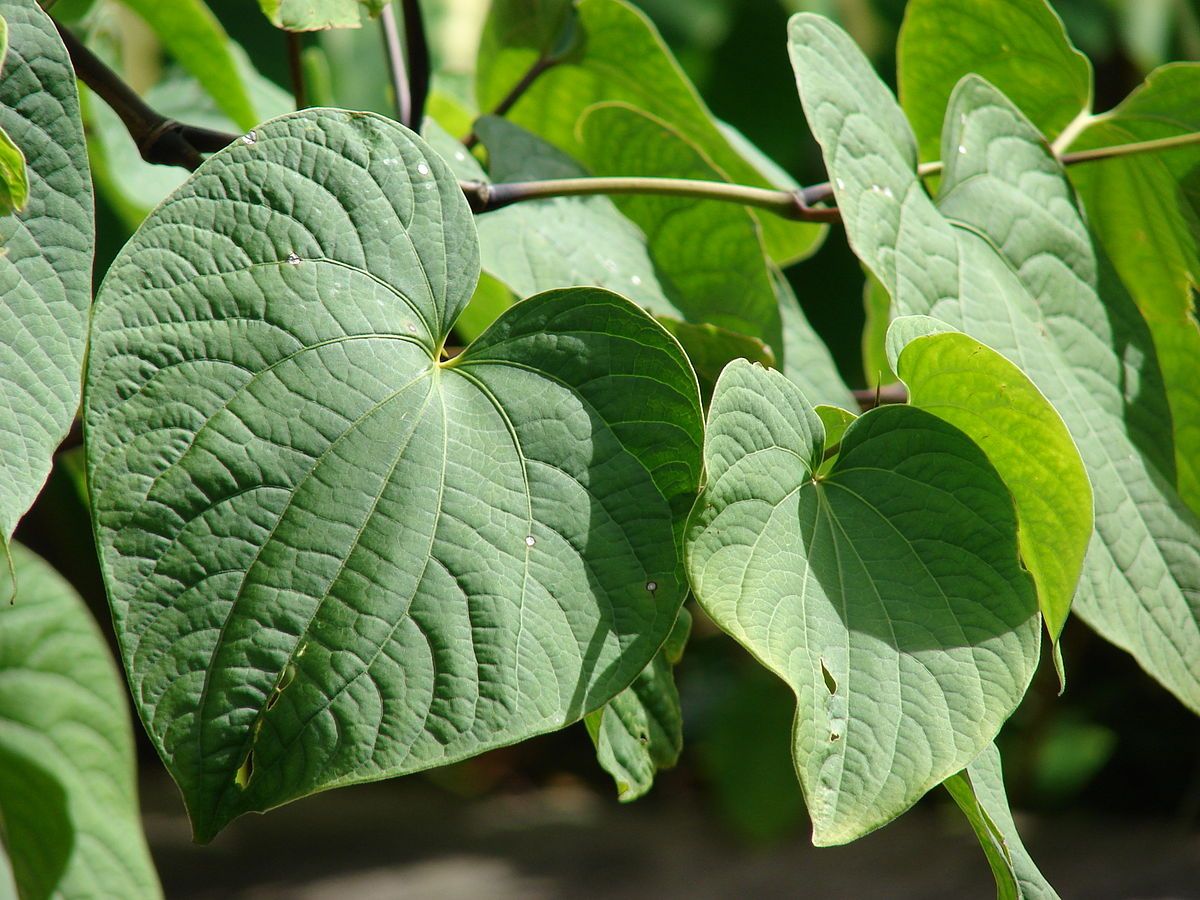Kava
Islanders of the South Pacific have enjoyed sharing a drink called kava-kava at social gatherings for centuries. The beverage was popular for easing the anxiety that can come with socializing, much like alcohol consumption is lauded in the Western world for easing social anxiety and facilitating conversation. One of the few plants not used as food, kava root has long been prized as a natural treatment for anxiety, insomnia, stress, menopausal symptoms, headaches and more.
English Name: Kava-kava or Kava
Latin Name: Piper methysticum
Type: Herbal
What is Kava?
Kava is a shrub that is native to the islands of the South Pacific, like Fiji, Tonga and the Hawaiian archipelago. It goes by many names in the native tongues of islanders, but the term “kava-kava” can be literally translated from the Tongan language as “bitter,” while its Latin name means “intoxicating pepper”5.
The broad-leafed plant thrives in the loose soil and humid conditions of these islands, where it has been cultivated for centuries for its medicinal and psychoactive properties. Natives generally dry and grind the root into a powder, then add it to clean water and consume it as a beverage called “grog.” A member of the Piperaceae family – which also includes more common food peppers like bell peppers and black pepper – the kava plant reproduces asexually, meaning it does not rely on pollinators3.
How does Kava work?
The root of the plant is its most sought-after part for medicinal use, as it is rich in kavalactones, which are known to modulate the brain’s GABA receptors to reduce symptoms of stress and induce a relaxed state conducive to sleep4. Research also indicates that kavalactones contain anti-inflammatory and antioxidant properties that can protect brain function and support healthy cell generation4.
What are the benefits of Kava?
The kavalactones in kava root create a soothing effect that can ease insomnia and facilitate good quality sleep. The anti-inflammatory and analgesic properties of the root can help relieve the muscle soreness and joint tenderness associated with arthritis and overuse1. Perhaps the most important and popular benefit of ingesting kava root is its ability to quell anxiety. The kavalactones help reduce stress hormones in the bloodstream without creating addiction, making them highly effective in treating both social anxiety and menopausal symptoms, like mood swings and hot flashes2.
While more research is needed to understand exactly how kava root works, its anti-inflammatory and stress-relieving properties have shown efficacy in treating headaches, achieving weight-loss goals, stopping smoking and neutralizing the free radicals that cause premature aging.
Products featuring Kava

Practice Self Care
Native Remedies recommends you consult your doctor before introducing new remedies into your regimen. Always ensure you are buying high-quality, laboratory-tested supplements from a reputable supplier. At Native Remedies, we back all our products with a 100 percent money-back guarantee. If you’re not happy with your purchase after trying it for 30 days, simply send it back for a refund. Here’s to your good health!
The content provided is for informational purposes only. It is not a substitute for professional medical advice. If you have a health condition, please consult a medical professional and do not use this information to self-diagnose or self-treat.
References:
- "9 Surprising Benefits of Kava Root." Organic Facts. February 09, 2018. Accessed August 13, 2018. https://www.organicfacts.net/kava-root.html.
- "Kava Health Benefits & Side Effects." Digitalwelt. June 13, 2018. Accessed August 13, 2018. https://www.digitalwelt.org/en/lifestyle/herbs/kava-health-benefits-side-effects.
- "Kava Kava." Gale Encyclopedia of Alternative Medicine. 2005. Accessed August 13, 2018. https://www.encyclopedia.com/medicine/drugs/pharmacology/kava-plant.
- Tzeng, Yew-Min, and Meng-Jen Lee. "Neuroprotective Properties of Kavalactones." Advances in Pediatrics. June 2015. Accessed August 13, 2018. https://www.ncbi.nlm.nih.gov/pmc/articles/PMC4498339/.
- "What Is Kava Kava?" WebMD. Accessed August 13, 2018. https://www.webmd.com/vitamins-and-supplements/what-is-kava-kava#1.
Reviewed by Master Herbalist, Mary Ellen Kosanke